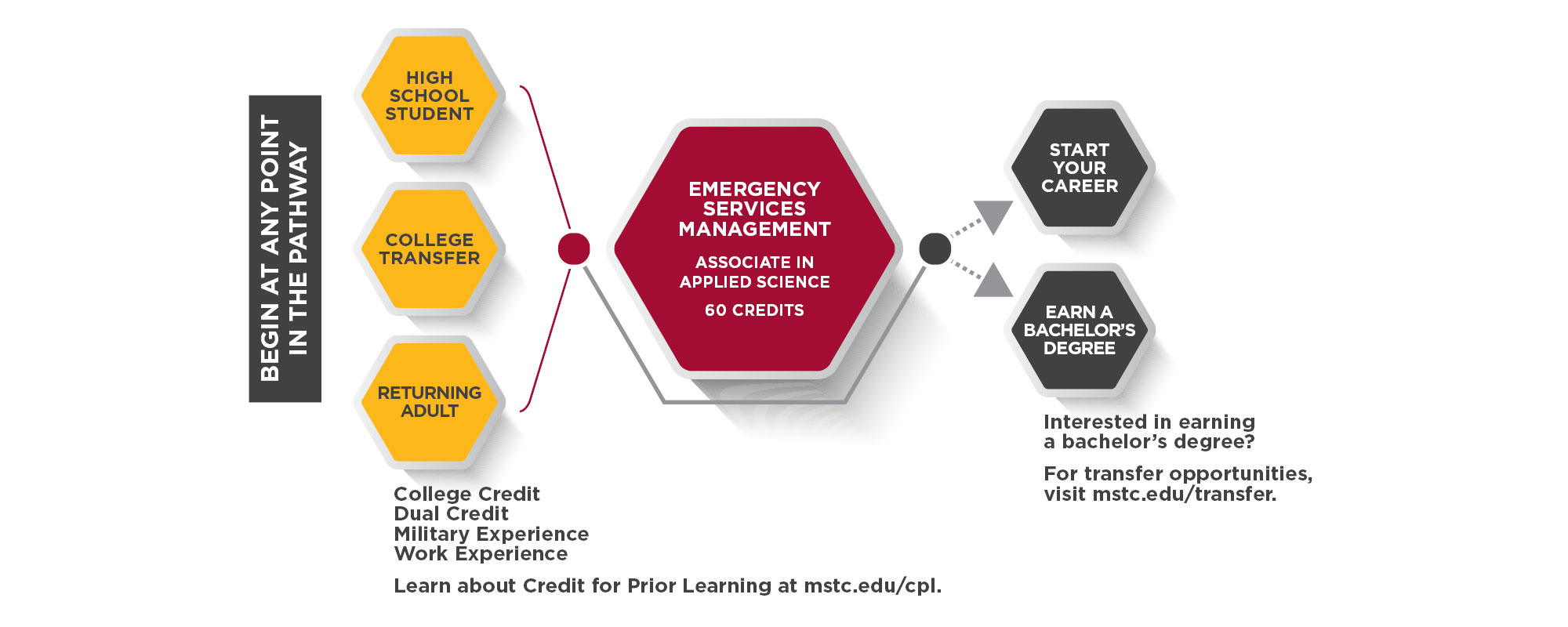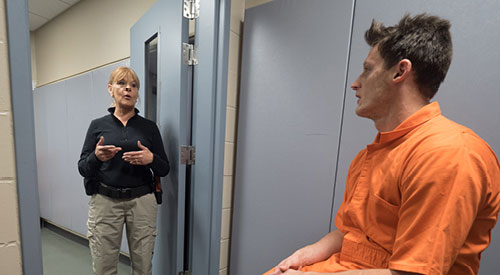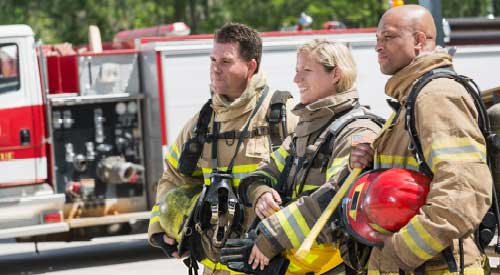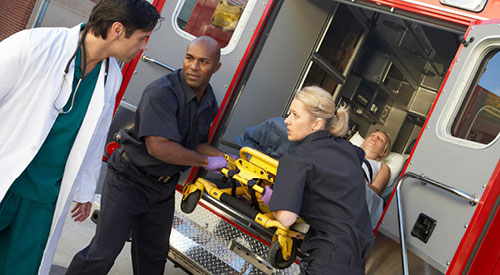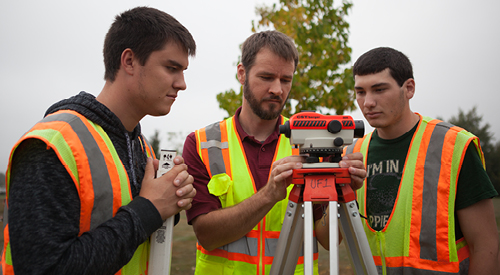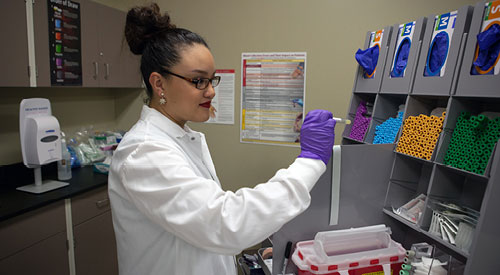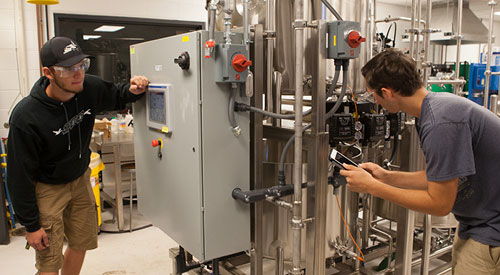Emergency Services Management
Why choose Emergency Services Management?
- Emergency services managers work diligently to ensure safety and well-being while maintaining relationships in the community and working alongside human resources.
- Get the training you need to think quickly and maintain control in a crisis in a program created to meet the needs of working firefighters and EMS providers.
- Take the next step to advance your career in emergency services.
- Interested in earning a bachelor’s degree? For transfer opportunities, visit mstc.edu/transfer.
Program Locations
Online
Delivery:
Online (anytime, anywhere)
Full-Time or Part-Time
Varying Class Schedule
Length of Program: Two Years
Credits: 60
Start Dates: Fall or Spring
Start at any time or campus by taking general education courses.
What You'll Learn
Mid-State’s Emergency Services Management program will strengthen and advance the knowledge and skills needed for firefighters and paramedics to become supervisors. The program focuses on topics such as personnel management, risk management, OSHA, legal aspects, and community relations. Fire and EMS tracks are available to allow students an opportunity to pursue additional knowledge in their area of interest or career path.
This program is online, thus the experiences will be different from a traditional course. Activities in class will strengthen collaboration, problem-solving, critical thinking, and research.
Outcomes
- Demonstrate the professional responsibilities of a fire or emergency services manager.
- Demonstrate critical and creative thinking in the problem-solving process.
- Apply research and best practices in the fire or emergency services professions.
- Demonstrate the professional attributes necessary for a fire or emergency services manager to lead effectively.
- Apply the legal, ethical, and regulatory standards that relate to the fi re or emergency services.
Technical Standards
Students in this program should be able to meet its specific technical standards. These are the essential skills and abilities needed to be successful in the program, with or without reasonable accommodation. It is important to review and understand these standards before applying to the program.
View Technical Standards For This Program
Employability Skills
- Behave Responsibly: Ethical Behavior, Self-Responsibility, Conflict Resolution, Collaboration
- Communicate Effectively: Writing, Technical Documentation, Listening, Speaking, Interpersonal Communication, Reading
- Critical & Creative Thinking: Inquiry, Evidence Collection, Analysis, Reasoning, Reflection (Metacognition)
- Cultural, Social, & Global Awareness: Global Awareness, Social & Cultural Awareness, Social Responsibility
- Use Appropriate Technology: Use of Technology, Confidentiality, Security, Digital Civility
Learn more about employability skills at Mid-State.
Estimated Entire Program Cost
Cost based on the 2025/26 academic year.
- Tuition & Fees: $9,983.00
- Books: $683.95
- Supplies, Uniforms, and/or Exams: $0
- Total Estimated Cost: $10,666.95
Financial Aid Eligibility
This program is eligible for full Financial Aid.
Cost of Attendance
Learn more about Cost of Attendance, an estimated budget that includes categories of expenses a student can expect to incur while attending.
This course has options available to receive credit for prior learning (CPL) or work experience.
| Catalog# | Title | Credits | |
|---|---|---|---|
| 10801136 | English Composition 1 | 3 | |
| 10546112 | Mental Wellness for Emergency Services | 2 | |
| 10503143 | Building Construction for Fire Protection | 3 | |
| -or- | 10531170 | Intro to Evidence-Based EMS | 3 |
| 10546100 | Essential Concepts for Health and Wellness | 3 | |
| 10503121 | Emergency Services Safety and Survival | 2 | |
| 10503123 | Occupational Safety and Health for Emergency Services | 3 | |
| Term Total | 16 Credits | ||
| Catalog# | Title | Credits | |
|---|---|---|---|
| 10196135 | Conflict Resolution | 3 | |
| 10503122 | Principles of Emergency Services Administration | 4 | |
| 10809166 | Introduction to Ethics: Theory and Application | 3 | |
| 10804107 | College Mathematics | 3 | |
| 10503195 | Fire Behavior & Combustion | 3 | |
| -or- | 10531171 | EMS Leadership Challenges | 3 |
| Term Total | 16 Credits | ||
| Catalog# | Title | Credits | |
|---|---|---|---|
| 10503124 | Emergency Services Instructor | 3 | |
| 10503125 | Personnel Management for Emergency Services | 3 | |
| 10503126 | Legal Aspects of Emergency Services | 3 | |
| 10503127 | Community Risk Reduction | 3 | |
| 10809198 | Introduction to Psychology | 3 | |
| Term Total | 15 Credits | ||
| Catalog# | Title | Credits | |
|---|---|---|---|
| 10503156 | Strategies, Tactics, & Incident Management | 4 | |
| 10503128 | Public Information and Community Relations | 3 | |
| 10809172 | Introduction to Diversity Studies | 3 | |
| -or- | 10809122 | Introduction to American Government | 3 |
| -or- | 10809196 | Introduction to Sociology | 3 |
| 10801196 | Oral/Interpersonal Communication | 3 | |
| -or- | 10801198 | Speech | 3 |
| Term Total | 13 Credits | ||
| Program Total | 60 Credits |
Instructors
Careers
- Assistant Chief
- Captain/Lieutenant
- EMS Supervisor
- Captain
- Chief
- Deputy Chief
- Fire Supervisor
- Lieutenant
- Municipal Fire Fighting and Prevention Supervisor
- Relief Officer
Fast-Track
High school students are eligible to enroll in this program and all courses required. Learn more about Mid-State Fast-Track.
Take the Next Step
"My degree from Mid-State and the encouragement I received from my teachers gave me the skills and confidence to move forward in my life and excel in my career."
SHARON REED
GRADUATE
Choose Your Path
Career pathways help you take your education one step at a time to maximize your investment and make college fit your life. Earn a credential and start using it in the workforce. Continue with another stack of related courses to gain a more advanced diploma or degree. Explore this program’s pathway in the graphic below. For an even quicker first step to a degree or diploma, check out our short-term certificates.
Transfer • Dual Credit • Credit for Prior Learning
